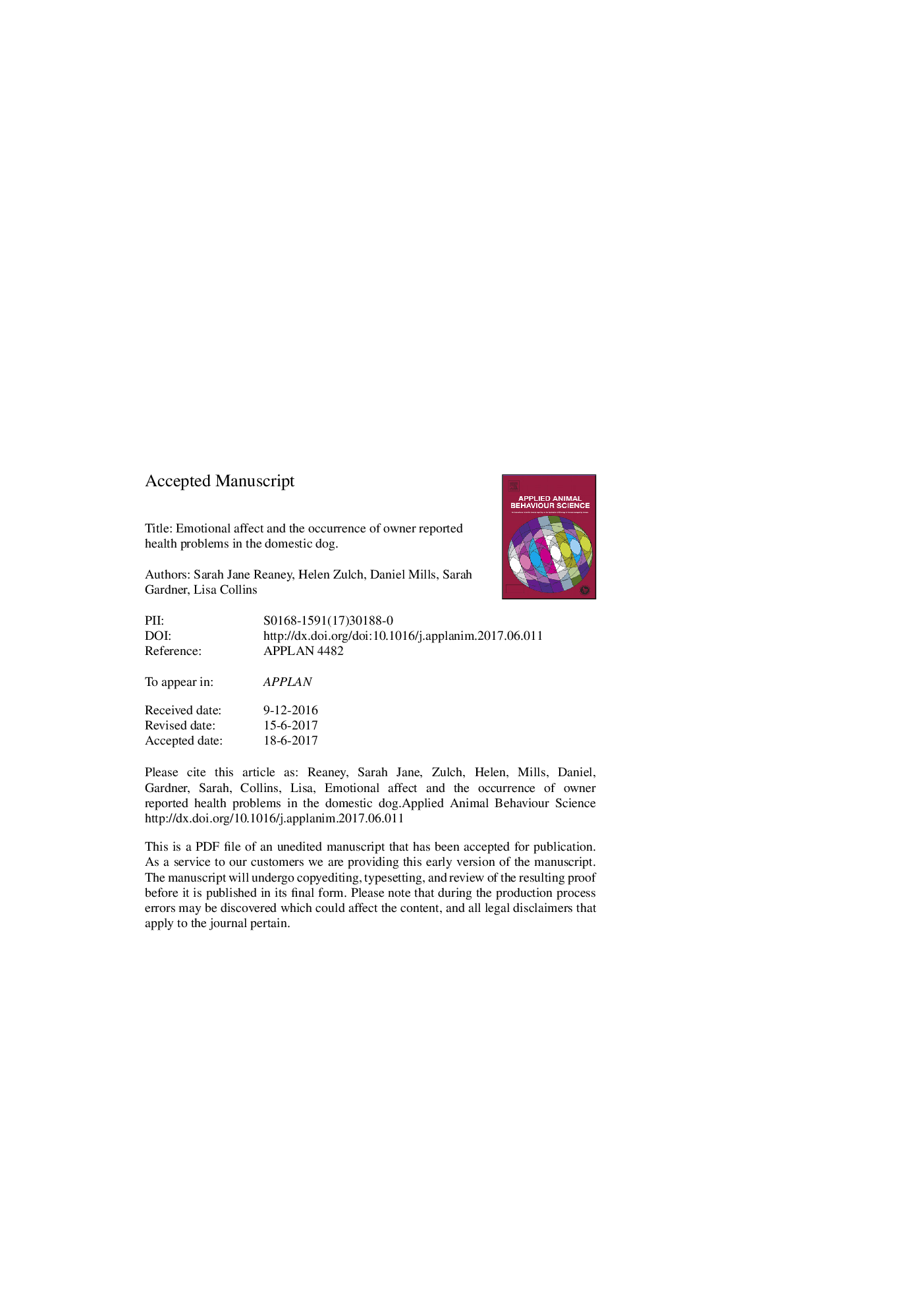ترجمه فارسی عنوان مقاله
مقاله اصلی تأثیرات عاطفی و وقوع صاحب مشکلات سلامتی در سگ داخلی را گزارش کرده است
عنوان انگلیسی
Original articleEmotional affect and the occurrence of owner reported health problems in the domestic dog
| کد مقاله | سال انتشار | تعداد صفحات مقاله انگلیسی |
|---|---|---|
| 160784 | 2017 | 33 صفحه PDF |
منبع

Publisher : Elsevier - Science Direct (الزویر - ساینس دایرکت)
Journal : Applied Animal Behaviour Science, Volume 196, November 2017, Pages 76-83
ترجمه کلمات کلیدی
پرخاشگری رفتار - اخلاق، سگ تاثیرات احساسی، سلامتی، حالت،
کلمات کلیدی انگلیسی
Aggression; Behaviour; Canine; Emotional affect; Health; Mood;
ترجمه چکیده
رگرسیون لجستیک دوقطبی، با تجارب فعلی یا پیشین طیفی از سلامت عمومی و عوامل ایجاد درد، شامل متغیرهای وابسته و دامنه وابستگی، پرخاشگری و سن به عنوان متغیرهای مستقل انجام شد. برای اکثر شرایط بهداشت عمومی (به استثنای گروه دندانپزشکی، بینایی و شنوایی) تنها سن، پیش بینی کننده تجربه هر دو حال و گذشته از وضعیت سلامتی بود. با این حال، اثرات مثبت با تجربه کنونی یک بیماری ناشی از درد همراه بود، و نتایج مثبت تاثیر مثبت کمتری داشت که اغلب با وجود یک عامل ایجاد درد در حال حاضر همراه بود. فقط سن با تجربه یک وضعیت قبلی همراه بود. در نهایت، هیچ گونه تفاوت در نمرات تجربی بین سگ ها در هر یک از گروه های تجربه درد یافت نشد. این نتایج یافته های جدید را برای ارتباط بین مشکلات بهداشتی و اثرات در سگ ها فراهم می کند.

